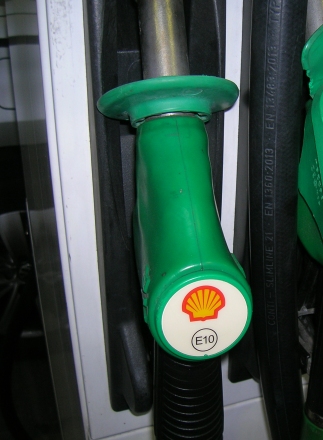Classics
at risk with E10
This
is the lead article in Classic Car Weekly out today.
DfT open
consultation on E10 petrol, consumer protection and fuel pump labelling
Launched
in July 2018, the DfT consultation was "seeking views on a range of issues
related to renewable transport fuel supply in the UK". The consultation closed
on 16th September 2018.
GOV.UK consultation
See our earlier NEWS report.
180720 More
E10
contains more bioethanol than traditional petrol in the UK
The DfT
publicity says introducing E10 "would help reduce carbon emissions from petrol
vehicles, helping the UK meet its climate change targets". The Transport
Minister Jesse Norman said: "this Government is ambitiously seeking to reduce
the UK’s reliance on imported fossil fuels and cut carbon emissions from
transport. But drivers of older vehicles should not be hit hard in the pocket
as a result. We have launched
this consultation in order to understand the impact of E10 on the UK market better,
and to ensure that drivers are protected if any changes come into effect".
See
our biofuels "information gateway" with links to earlier news items
and articles on the ethanol topic. More
Posted:
181010 |  |
Classic
Car Weekly reports that calls to save classic cars from the
negative effects of introducing E10 petrol in the UK have not
been addressed by four main political parties. CCW approached
the Labour, Conservative, Liberal Democrat and Green parties
for comment, but only Labour and the Liberal Democrat parties
responded. Shadow Transport Secretary, Andy McDonald, is reported
to have said "Labour supports the introduction of E10 in
order to tackle climate change." However the Labour member
on the All Party Parliamentary Historic Vehicle Group (APPHVG)
in Westminster called for E5 to be available on forecourts for
modern classic cars as well as older ones. The LibDems political
advisor on environmental matters indicated that given the problems
classics have with E10 they support the option of a protection
grade suggested in the DfT's consultation.
CCW report that the environmental
lobbyists' calls to put E10 on the forecourts before 2020 are growing and have
attracted considerable support at recent Labour and Conservative party conferences.
The Federation of British Historic Vehicle Clubs (FBHVC) is supporting
the case for introducing an E5 "protection grade" of less harmful fuel
for classic cars if E10 is rolled out in the UK. The FBHVC also highlights that
as historic vehicles cover on average 1,124 miles a year, this means a negligible
environmental impact in the UK. Clearly the FBHVC has the tread carefully and
with tact here. | Around
one million cars registered in the UK before 2000 could not use E10
In
a report in the Times today it says "these cars include Rovers (91,600),
MGs (75,800), VWs (61,400) and Nissans (55,100). Under the DfT plan motor
fuel retailers would be expected to sell E10 alongside existing petrol which contains
up to 5% ethanol. It raises the prospect of some larger fuel stations selling
three types of petrol: E10, E5 and the more expensive high octane petrol usually
with far lower levels of ethanol. Whilst expensive, many classic car enthusiasts
do opt for the "super" grades with the general result of lower ethanol
impact on the fuel systems. The DfT announcement does not suggest a start date
for the new rules but says that E5 will be protected "beyond 20120",
raising the prospect that E10 may be available by then.
Clearly many smaller
filling stations around the UK will not have sufficient storage infrastructure
or fuel pumps to offer motorists three grades of fuel on their forecourts. The
continued availability of low ethanol fuels is essential for classic car enthusiasts
so following this news item closely will be a concern for many. |
|



